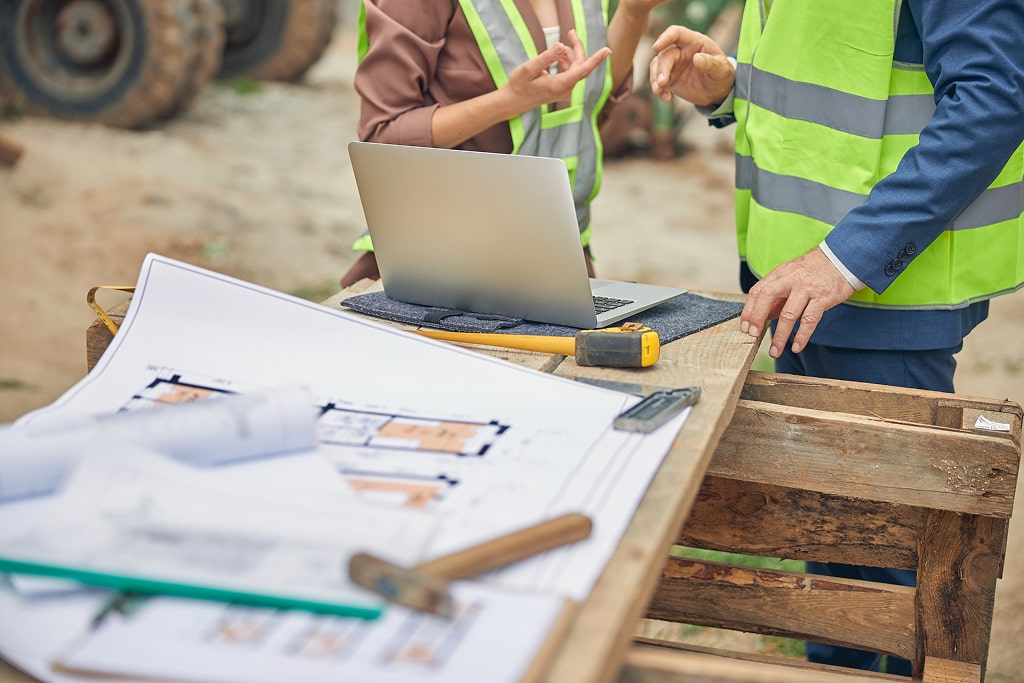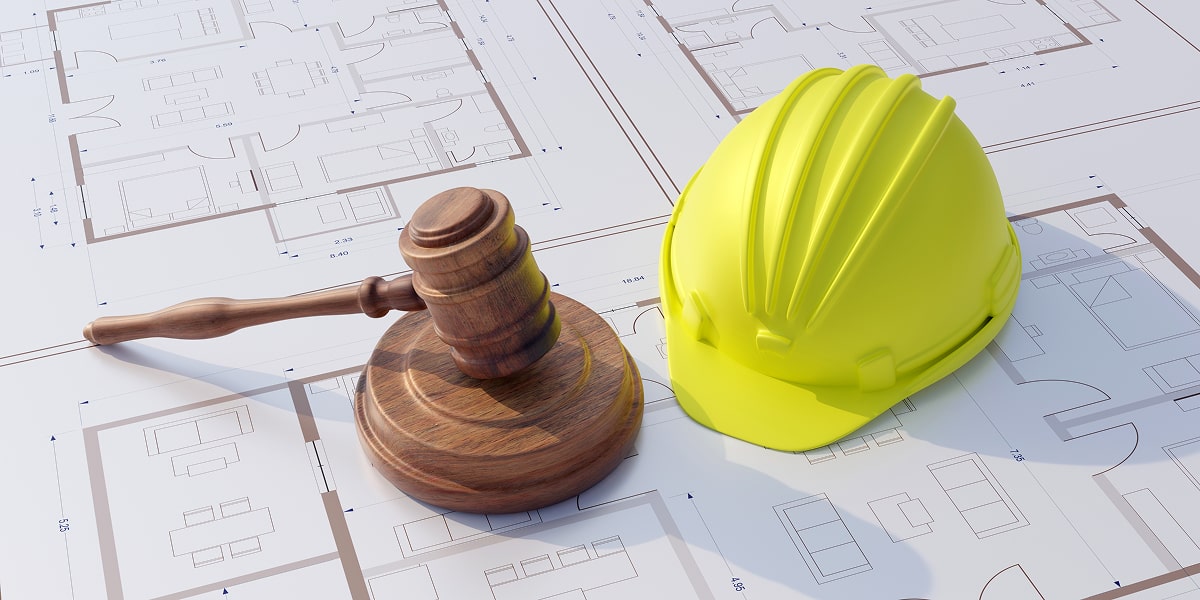When delays happen in construction, it’s not just about waiting longer. It’s about money, time, and trust between everyone involved.
Construction delay disputes can be costly, time-consuming, and frustrating. But what if there was a way to prevent them from spiralling out of control?
Construction delays are often seen as a part of the process, but when not handled well, they can lead to serious disputes.
These disputes stall projects and create tensions between contractors, clients, and stakeholders.
By addressing these issues early, construction projects can run more smoothly, and everyone can avoid the headache of escalated claims.
Here are 5 steps you can take to resolve construction delay disputes before they get worse.
Why Do Construction Delay Disputes Happen?

Construction projects are complex and involve many moving parts.
From contractors and subcontractors to suppliers and project managers, there are multiple stakeholders, all working together towards a common goal.
However, when communication breaks down or unforeseen issues arise, delays are inevitable. And when delays occur, disputes often follow.
Common causes of construction delay disputes include:
- Unclear project timelines
If deadlines aren’t set or communicated properly, misunderstandings can quickly turn into disputes.
- Lack of communication
Failure to inform all parties of delays or changes can lead to confusion and frustration.
- Weather and unforeseen circumstances
Weather conditions or unexpected site issues can delay progress and cause disagreements.
- Contractor or subcontractor issues
Problems with suppliers, workers, or contractors failing to meet deadlines often result in disputes.
According to an article from the Chartered Institute of Building (CIOB), approximately 40% of construction delays are attributed to ineffective project management and communication.
When these issues are not addressed early, they grow into bigger problems.
What Are the Consequences of Construction Delay Disputes?
When construction delay disputes are left unresolved, they can lead to several consequences, which can have long-lasting effects on the project’s success. These include:
- Increased costs
Disputes often lead to added costs for both the contractor and client, including legal fees, penalties, or additional work to address the delays.
- Damaged relationships
Trust between contractors, subcontractors, and clients can be broken, making future collaboration difficult.
- Project delays
What started as a minor issue can snowball into significant delays, ultimately extending the timeline for project completion.
These consequences are why it’s critical to handle construction delay disputes swiftly and efficiently before they spiral out of control.
How to Prevent Delays From Turning Into Disputes
To keep a project on track, it’s important to handle potential delays the right way. Here are five steps that will help you resolve construction delay disputes before they escalate:
1. Clear Communication is Key
One of the most common causes of disputes in construction projects is poor communication.
Whether it’s between contractors, subcontractors, or clients, everyone involved needs to stay informed about the progress of the project.
If there are any expected delays, it’s crucial to notify all parties as early as possible.
Communication should not be a one-time event; it needs to be ongoing throughout the project.
Regular meetings and updates help everyone stay on the same page, and using project management tools makes tracking progress and sharing updates even easier.
What You Can Do:
- Hold regular meetings to track progress.
- Ensure everyone is aware of any expected delays.
- Use project management tools to streamline communication.
2. Document Everything
Documenting every aspect of the project is essential for preventing disputes.
Keep records of agreements, changes, and any delays that occur. Documentation serves as a backup in case a disagreement arises.
Contracts should clearly outline the steps to take if delays occur.
Having a clear, written record helps resolve disputes by referring back to the agreements that were made.
As the Construction Industry Training Board (CITB) advises, well-maintained documentation is crucial for addressing issues swiftly.
What You Can Do:
- Record all agreements, changes, and delays.
- Use contracts to outline steps for handling delays.
- Maintain thorough documentation for future reference.
3. Identify the Cause Early
When a delay occurs, take immediate action to identify the cause.
Was it caused by weather, a shortage of materials, or an unexpected issue like labor shortages?
The sooner you identify the root cause, the sooner you can come up with a solution.
Understanding the cause of the delay also helps in finding ways to prevent it from becoming a bigger problem.
The National Federation of Builders (NFB) suggests that identifying delays early can significantly reduce the chance of them escalating into a full-blown dispute.
What You Can Do:
- Investigate the cause of delays as soon as they happen.
- Early identification can help resolve issues quickly.
- Address the problem before it becomes bigger.
4. Negotiate Fairly
Sometimes, disputes are inevitable.
However, fair negotiation can often resolve issues before they escalate.
Be open to compromise and work toward finding a solution that benefits both parties. When both sides are willing to meet halfway, disputes are less likely to grow.
If negotiation doesn’t lead to a resolution, mediation is a good alternative.
According to The Royal Institute of Chartered Surveyors (RICS), mediation is a faster and cheaper option than going to court, and it can help constructively resolve disputes.
What You Can Do:
- Try to negotiate fairly and openly.
- Be willing to compromise when possible.
- Consider mediation if direct negotiation fails.
5. Understand Your Rights and Responsibilities
To avoid construction delay disputes, it’s vital to understand your rights and responsibilities.
Know what the contract says about delays and ensure that all terms are clear.
If you’re unclear about any of the contract terms, don’t hesitate to ask for clarification.
According to The Law Society, understanding the legal aspects of construction contracts can significantly reduce the risk of disputes.
When both parties are aware of their rights and obligations, the chances of misunderstandings and conflicts are minimised.
What You Can Do:
- Familiarise yourself with contract terms regarding delays.
- Ask for clarification on terms if needed.
- Consult with a legal advisor to ensure your understanding of the contract.
How to Resolve Construction Delay Disputes Quickly

Resolving disputes quickly can save both time and money. Here are a few tips for quickly resolving delay disputes:
Be Proactive
Anticipate potential issues and address them before they become bigger problems. If you see a delay on the horizon, take action immediately.
Proactive measures such as adjusting the schedule or adding additional resources can help prevent disputes later.
Use Technology
Project management tools can help track progress and keep everyone informed in real-time.
These tools can also serve as proof in the event of a dispute, showing the project’s progress and any delays that occurred.
Seek Mediation Early
If you’re stuck in a dispute, don’t wait too long to consider mediation.
Mediation is often faster and cheaper than going to court, and it allows both sides to express their concerns and work toward a solution.
Protect Your Project with the Right Approach
Handling construction delay disputes can be stressful, but with the right approach, you can keep your projects running smoothly.
Open communication, solid documentation, early identification of issues, fair negotiation, and understanding your rights are key steps in preventing delays from escalating into major disputes.
At The Construction Consultants, we understand that delays are an inevitable part of any construction project.
But with careful planning and management, they don’t have to lead to disputes.
Our team is dedicated to helping you navigate these challenges and ensure your projects stay on track.
If you need assistance in resolving any construction-related issues, don’t hesitate to reach out for expert advice.

